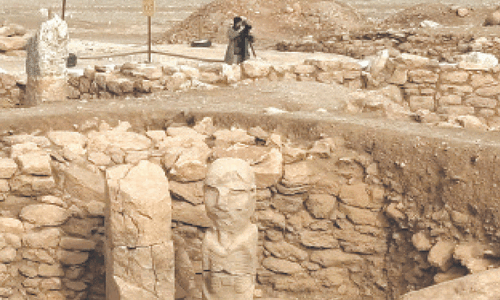WASHINGTON: A US diplomatic cable describes JUI-F chief Maulana Fazlur Rehman as “more a politician than a mullah” and notes that he also has been a “frequent and cooperative interlocutor” with the US Embassy in Islamabad.
The cable, recently by WikiLeaks, is an action request from the embassy to FBI headquarters in Washington for removing Maulana Fazlur Rehman’s name from a list of suspected terrorists. In this cable, sent on March 25, 2008, chargé d’affaires Peter Bodde notes that an individual named Fasil ur Rehman, believed to be associated with Jamaat-i-Islami, was identified as a suspect in the March 2008 bombing in Islamabad. But an FBI notification inadvertently equated this individual with Maulana Fazlur Rehman.
The embassy requests that FBI recall this information from all hard copy and database records due to discrepancies and errors in the report.
The cable then explains that the maulana is not associated with the JI, but instead leads his own political party, the JUI-F. From 2002-2007 the two parties allied with other religious parties in the Muttahida Majlis-i-Amal coalition. However, the JUI-F and JI retained separate leadership structures as well as separate political objectives and methods. The cable describes JUI-F as a conservative Deobandi religious party that recently has joined the new PPP-led government.
“Maulana Fazlur Rehman, more a politician than a mullah, has been a prominent and legitimate figure in Pakistani politics since the 1980s,” the cable notes.
“Mr Rehman has publicly denounced terrorist attacks, but prefers to use negotiations rather than military force against militants.”
The cable points out that although the maulana is known to have contacts with Taliban and their sympathisers, he has negotiated with religious militants on the government’s behalf, garnering him criticism from the more hardline religious sectors. “Maulana Fazlur Rehman also has been a frequent and cooperative interlocutor with the embassy and professes his support for cooperation with the United States,” the cable says. The embassy described Jamaat-i-Islami as a religious party that appeals to a narrow sector of the educated, conservative urban middle class. JI, which has a vibrant student wing, began as a movement for social change based on Sharia, it adds.
“The JI party policy does not support violence as a means to achieve their political agenda. However, the party quietly has supported jihad in Afghanistan and Kashmir by providing recruits from their student corps.” The cable notes that “the party does not support violence perpetuated within Pakistan, such as the recent attack on the restaurant in Islamabad.”
































